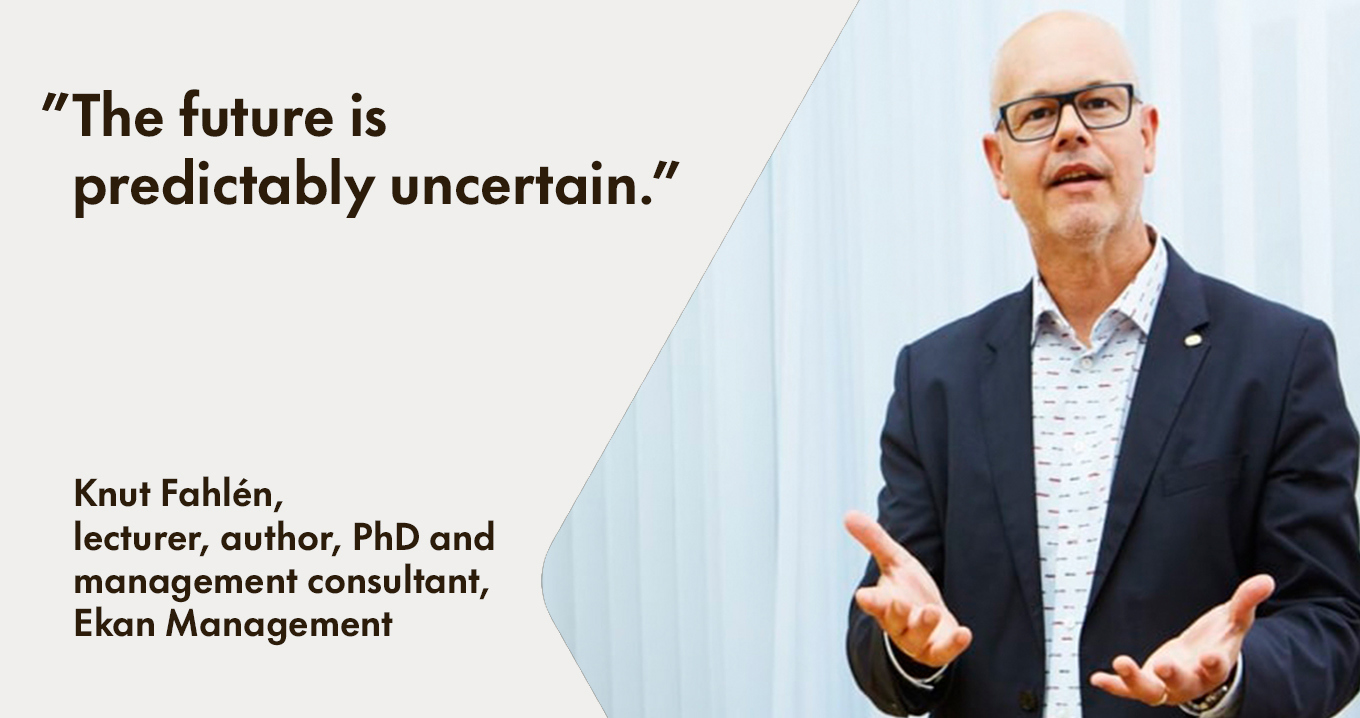Accept that the Future is Uncertain – Time to Rethink the Budget Process?
Today's approach to budgeting, monitoring, and forecasting runs the risk of not keeping up with the new demands of the world. A budget process that consumes months of the organisation's time and becomes outdated in the first quarter can cause you to lose both direction and momentum, according to two experts in the field. Here's how you should think instead.

The budget process for next year is underway for many companies and organisations. Perhaps unpredictability has never been so high before. Where will interest rates, energy prices, and inflation go? How will it affect pricing and demand? And can we count on timely deliveries?
Knut Fahlén is a researcher and author of several books on dynamic control and decision-making under uncertainty and risk. He warns of the risks of a traditional budget process in uncertain times:
"In a classic budget process, everything should be presented in detail and in the right accounts. Many companies and organisations tell me that the budget is already a bit outdated by January 1. And completely obsolete after the first quarter. It's a waste of resources, in my opinion," says Knut Fahlén.
Knut Fahlén agrees that we are living in uncertain times. But we have been since 2009:
"The future is predictably uncertain. It has been since 2009. After Lehman Brothers' bankruptcy, the economy collapsed in large parts of the world. Then we had the ash cloud, COVID, and the ship in the Suez Canal. A series of events that disrupt the entire logistical system and have a major impact on society. Today, everyone must accept that the future is uncertain," he says.
Ulrika Bröjer is a controller with nearly 20 years of experience from a number of large companies. Today, she works as a solution expert at Hypergene.
"The classic budget can be very cumbersome. I've been there myself. It can take several months, and above all, consume energy that could be spent on current operations. The fact that the budget becomes outdated fairly quickly only reinforces the feeling of wanting more efficiency," says Ulrika Bröjer.
"In times when a lot is happening, both with an uncertain environment and a high rate of change, everyone must be on their toes. Those who are not tuned in risk being overtaken. Then it's important to have thought through both working methods and the conditions you have in place. Whether you continue with the traditional budget or switch to a more dynamic control, there is much to be gained by working more automated and based on a digitalisation strategy that includes financial planning," she says.
To approach a more agile mindset, changes are required. Ulrika Bröjer and Knut Fahlén have some keys to quickly switch to a more flexible view of the budget:
- Meet the need for faster forecasting: Excel has its limitations when it comes to flexibility. Work with the right inputs, use good tools to produce forecasts on a more frequent basis, and work with rolling forecasts.
- Work with best- and worst-case scenarios: Present this to management. Based on what is most likely, everyone can be involved in making decisions. Gut instinct and experience can be balanced against hard numbers.
- Use experts: Involve people who are closely involved in the business. Collaborate and invite colleagues from different parts of the organisation. This becomes an iterative way of working to bring information to decision-makers. It helps to identify trends early.
- Create automation: If the organisation has automated, role-based, and flexible information, budgeting becomes more dynamic. This facilitates the work of employees involved in the process. They can spend time on other tasks, such as relevant analysis and mapping. This leads to a better understanding of context, rather than months of detailed budget work. Visualise trend lines and make information understandable.
- Look beyond the end of the year: There is a risk of becoming fixated on a specific date and not being able to see beyond it. Those who use rolling forecasts can capture trends in parallel. Most companies and organisations need to keep up with the rhythms and changes in the world. Allocate at a high level and reduce detail work.
- Simplified budgeting equals better leadership: Months of detailed Excel sheets mean that managers have so much information to consider that they do not even have time to see their employees. Managers risk failing in their leadership role. A budget where goals and meaning are linked gives managers more time and makes employees feel more involved in decisions made.
- Move away from the negotiation game that a budget can entail: Sales targets that are set too low or extra cushions that protect against expenses are inefficient, rigid, and lack reality.
- Learn from new tech companies: They usually work more streamlined, and more agile. They face tougher competition and have a greater understanding of sudden changes and fluctuations.
With automation, the right tools, and smart systems, budgeting, forecasting, and follow-up can be faster, smoother, and more efficient. With quality-assured information, you can get better forecast accuracy than before.
"Time is freed up for things other than cutting, pasting, and filling out forms. If you have laid the foundation, the model, and a way of working, you can adapt when reality changes. You adjust when you need to, simply," says Ulrika Bröjer.
7-minutes video demo of Hypergenes solution:



